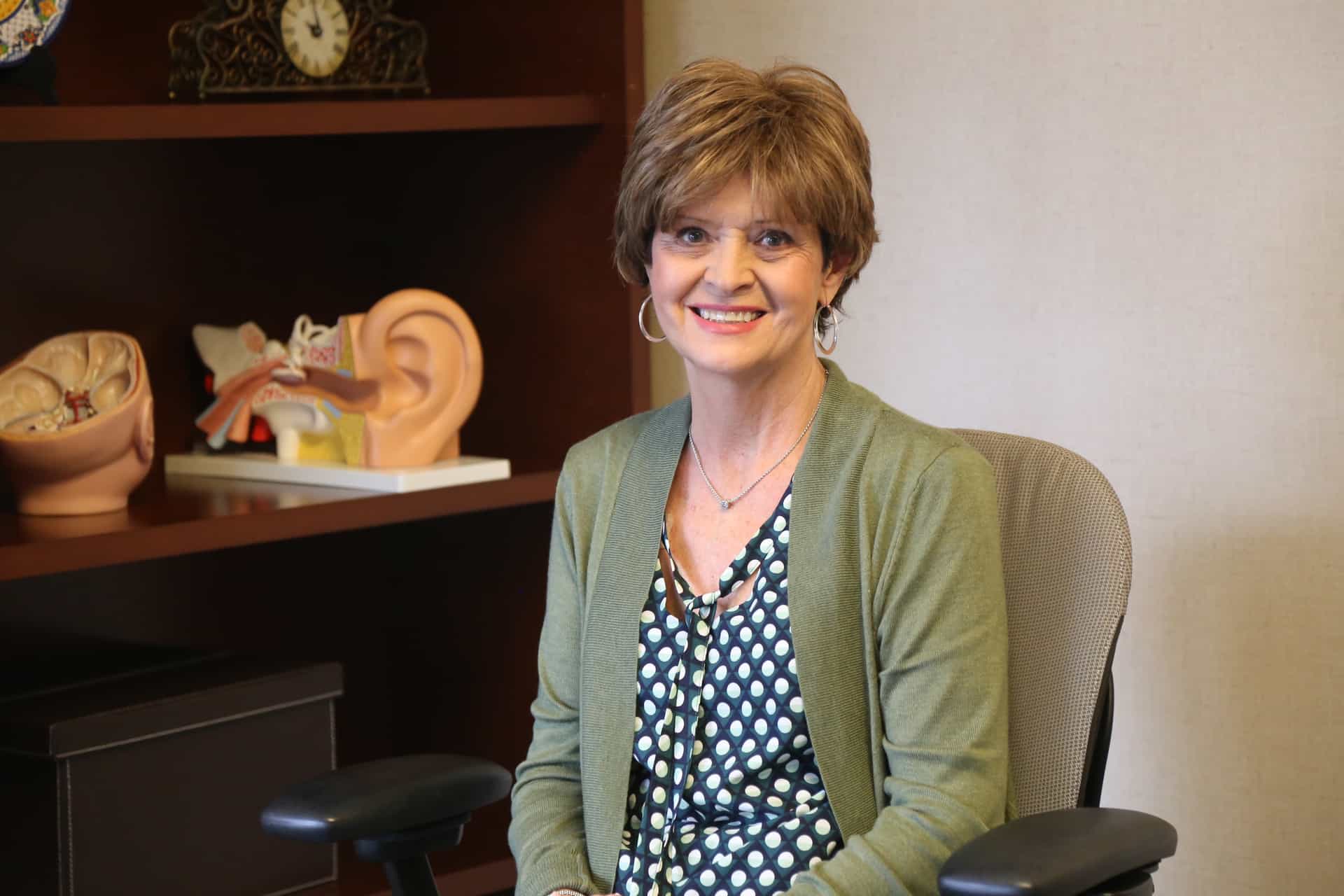First Time in US: Patient Treated in Trial Using Virus on Brain Tumor
| Nov. 15, 2016 | Beth Rogers might have been the first person in the United States to be treated as part of a clinical trial that included the injection of a virus into her brain tumor in combination with immunotherapy treatments – but the Hazen resident said she had no fear.
“I’ve got so much to live for,” Rogers said. “I’ve got a wonderful family, five grandchildren, wonderful friends and a community. And I’ve just had so much support. I’m a retired elementary school librarian. They’ve written me letters and sent me cards. I owe it to them to try and see what I can do and that’s why I have no fear. I know I’m on the right path.”
Rogers came to UAMS for the procedure when her tumor continued to grow despite two previous surgeries and a combination of chemotherapy and radiation. For advice, she sought out big-name cancer doctors from out of state and they referred her back to Arkansas and UAMS for this clinical trial.
“That is so neat,” Rogers said of being treated so close to home. “I’m just hopeful through this trial that I’m going to help them find better treatment for glioblastoma because we’ve got to do something. And I’m proud that it’s being done in Arkansas at UAMS.”
J.D. Day, M.D., professor and chairman of the Department of Neurosurgery in the UAMS College of Medicine, performed the surgery and described the treatment as a combination of therapies that he hopes will destroy Rogers’ cancer.
During the surgery, Day injected Rogers’ tumor with an adenovirus, which is associated with the common cold. The procedure involved a new specially designed cannula that put the virus right where Day wanted it. Once in place, the virus began multiplying, attacking cancer cells but not affecting healthy cells. The virus replicates on its own, continuing the attack as long as cancer cells are present, so no further injections will be needed.
After surgery, Rogers has been taking infusions every three weeks of pembrolizumab – under the Keytruda brand name – an immunotherapy that weakens cancer cells and improves immune response to help her body to fight off the tumor.
The combination of treatments has proven successful with other types of cancer, but this is the first time it has been tried with a brain tumor.
Rogers underwent the surgery Oct. 5 and said she has been feeling great. She continues to go to physical and occupational therapy to help with the physical effects caused by the tumor.
“It’s been an awesome experience,” she said.
Day said he has worked to bring such treatments and trials to UAMS because he doesn’t want people to have to leave Arkansas for treatment – no matter what the challenges are with their particular tumor. That work has also positioned them to take part in such groundbreaking trials of national importance.
“We have worked to build a center for brain cancer treatment that is essentially second to nobody,” Day said. “We have all of the tools; we have all of the important research; we have trials open to patients – anything that people beforehand would feel they would have to leave the state to get.”
For his students, Day said he hopes they are inspired by such new and exciting developments and apply them to their research.
“It can show them what is possible,” Day said.
Both Rogers and Day urged anyone experiencing neurological symptoms to seek medical treatment immediately. Brain tumors can be aggressive, but initial symptoms can be subtle and are often ignored.
In Rogers’ case, she noticed coordination issues in January. Her left side didn’t seem to be keeping up with her right. This was especially pronounced when she was typing or picking up objects.
“I would have to watch my hand all the way to make sure I picked up what I was aiming for,” Rogers said.
Rogers thought it was strange, but didn’t consider it an emergency. It was her daughter who – upon finding out about Rogers’ symptoms – rushed her to the emergency room. It was only later that they learned how important early detection is in brain cancers.
“When you get a warning sign that something isn’t right, you better listen and take care of it,” Rogers said. “Never in my life did I expect something like this to happen to me, but the best thing you can do is accept it and start looking for treatments.”
How important is early detection? “Extremely,” Day said.
“She is not alone in having subtle symptoms. Tumors like this are often a rapidly changing situation. I’ve seen a tumor like this double in size in a month.”
Day is hopeful about the trial’s results. He doesn’t want future brain tumor patients to have to undergo multiple surgeries like Rogers. He looks forward to a future where care is tailored to the patient and feels this is a step in that direction.
“We want things like this to be a first step option instead of a last resort,” Day said.
Day works out of the Neurosurgery Clinic at UAMS.


